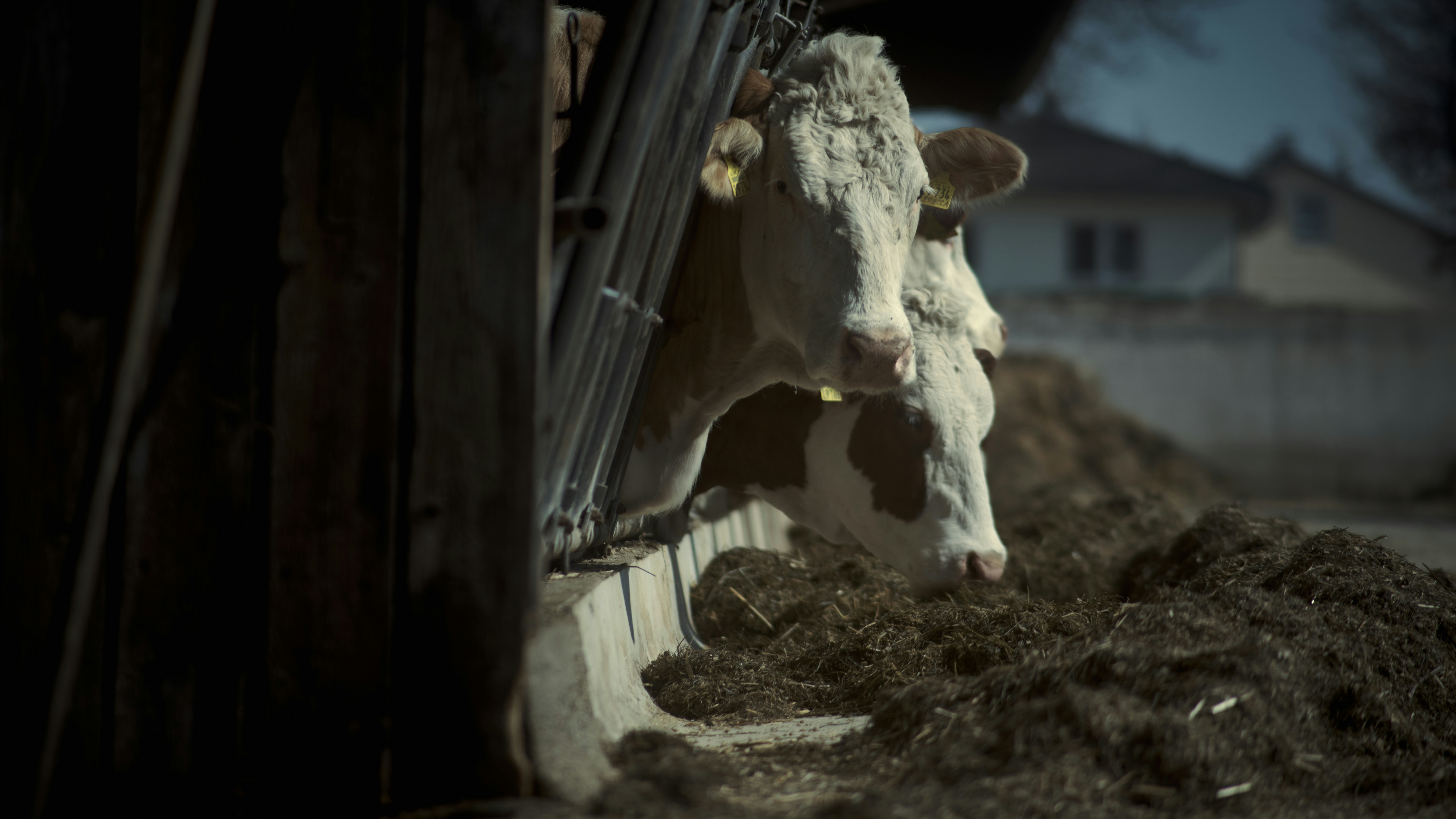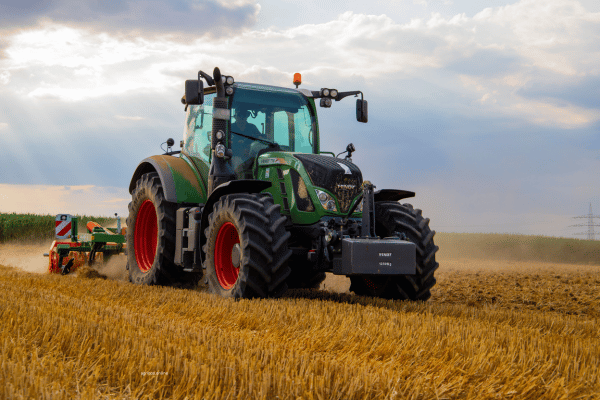Tractor Operating Cost Calculator
Estimate the annual and hourly costs of operating your tractor based on purchase, finance, maintenance, and operational expenses.
Make Your Agri Flow With Our AgriFlow Web App
Field, machinery, livestock & farm compliance tools all within one app.
Discover AgriFlow

How to Calculate the True Cost of Operating Your Tractor
Running a tractor is a cornerstone of modern farming, but the costs can add up quickly if you’re not keeping track. From fuel and maintenance to depreciation and hidden expenses like taxes, understanding the true cost of operating your tractor is essential for budgeting and maximizing profitability. Fortunately, with AgriOps’ free Tractor Operating Cost Calculator, you can estimate both annual and hourly costs in just a few clicks. In this guide, we’ll break down the key cost factors and show you how to use our tool to make smarter financial decisions for your farm.
Why Calculate Tractor Operating Costs?
Tractors are a significant investment, and their operating costs directly impact your farm’s bottom line. Whether you’re deciding to repair an old machine, purchase a new one, or optimize your current fleet, knowing the full cost picture helps you:
- Budget accurately for annual expenses.
- Compare equipment to find the most cost-effective option.
- Plan for replacements based on depreciation and usage.
- Improve profitability by identifying cost-saving opportunities.
Our Tractor Operating Cost Calculator simplifies this process by factoring in all major expenses, giving you a clear breakdown of costs per year and per hour. Let’s dive into the key factors you need to consider.
Key Cost Factors for Tractor Operation
To calculate the true cost of running your tractor, you need to account for both obvious and hidden expenses. Here’s a breakdown of the main cost categories:
1. Depreciation
Depreciation represents the loss in your tractor’s value over time due to wear and tear. It’s often the largest single cost for heavy machinery. To calculate it:
- Subtract the salvage value (what the tractor will be worth at the end of its life) from the purchase price.
- Divide the result by the working life (in years).
For example, a tractor purchased for £50,000 with a £10,000 salvage value over a 10-year life has an annual depreciation of: (£50,000 – £10,000) ÷ 10 = £4,000 per year.
2. Fuel Costs
Fuel is a major ongoing expense, influenced by diesel prices and your tractor’s usage. To estimate fuel costs:
- Multiply the diesel usage per hour (litres) by the cost per litre.
- Multiply the result by the hours used per year.
For instance, a tractor using 10 litres per hour at £0.80 per litre for 500 hours annually costs: 10 × £0.80 × 500 = £4,000 per year.
3. Maintenance and Repairs
Regular servicing and unexpected repairs keep your tractor running but add to the cost. Consider:
- Service intervals (e.g., every 500 hours) and cost per service (e.g., £300).
- Annual unexpected costs for breakdowns or parts replacement.
If your tractor requires a £300 service every 500 hours and you use it for 500 hours per year, plus £500 for unexpected repairs, the total is: (500 ÷ 500 × £300) + £500 = £800 per year.
4. Tyre Replacement
Tractor tyres wear out over time, and replacement costs can be significant. Calculate this by:
- Dividing the tyre replacement cost by the tyre lifespan (in years).
For example, if new tyres cost £2,000 and last 4 years, the annual cost is: £2,000 ÷ 4 = £500 per year.
5. Labour Costs
If you or your team operate the tractor, labour costs are a factor. Multiply the hourly labour rate by the hours used per year. For a £20/hour rate and 500 hours: £20 × 500 = £10,000 per year.
6. Tax and Insurance
Annual taxes and insurance premiums are fixed costs that vary by tractor type and region. For example, a £1,000 annual tax/insurance cost adds directly to your total.
7. Financing (Optional)
If your tractor is financed, include the interest rate on the loan. For a £50,000 tractor with a 5% interest rate, the annual finance cost is: £50,000 × 0.05 = £2,500 per year.
How to Use AgriOps’ Tractor Operating Cost Calculator
Manually crunching these numbers can be time-consuming, but AgriOps’ Tractor Operating Cost Calculator does the work for you. Here’s how to use it:
- Enter Purchase Details:
- Input the purchase price, working life, and salvage value to calculate depreciation.
- Optionally add an interest rate for financed tractors.
- Add Operational Costs:
- Enter hours per year, diesel cost and usage, labour rate, and tax/insurance costs.
- Include maintenance details like service intervals, service costs, and unexpected repairs.
- Specify tyre replacement cost and lifespan.
- Review Results:
- The calculator instantly shows annual costs for each category (depreciation, fuel, maintenance, etc.) and the total.
- It also provides the hourly cost, perfect for comparing tractors or planning jobs.
- Download a PDF:
- Enter your email to download a detailed PDF summary, ideal for record-keeping or sharing with your accountant.
The tool is free, user-friendly, and designed for farmers like you. Try it now at AgriOps’ Tractor Operating Cost Calculator.
Case Study: Calculating Costs for a Mid-Sized Tractor
Let’s see the calculator in action with a real-world example:
- Tractor Details:
- Purchase Price: £50,000
- Working Life: 10 years
- Salvage Value: £10,000
- Hours Per Year: 500
- Interest Rate: 5%
- Operational Costs:
- Diesel: 10 litres/hour at £0.80/litre
- Service Interval: 500 hours at £300/service
- Unexpected Costs: £500/year
- Tyre Replacement: £2,000 every 4 years
- Labour: £20/hour
- Tax/Insurance: £1,000/year
Using the Tractor Operating Cost Calculator, the results are:
- Depreciation: £4,000/year
- Fuel: £4,000/year
- Maintenance: £800/year (£300 service + £500 unexpected)
- Tyres: £500/year
- Labour: £10,000/year
- Tax/Insurance: £1,000/year
- Finance: £2,500/year
- Total Annual Cost: £24,800/year
- Total Hourly Cost: £49.60/hour (£24,800 ÷ 500)
This farmer now knows their tractor costs £24,800 annually or £49.60 per hour, helping them budget for operations or evaluate if a new tractor might be more cost-effective.
Tips to Optimize Your Tractor Costs
To keep your tractor operating costs in check, consider these strategies:
Evaluate Usage: Use the calculator to see if reducing hours or sharing equipment lowers costs.
Monitor Fuel Usage: Adjust tasks to minimize idle time and optimize engine efficiency.
Stick to Maintenance Schedules: Regular servicing prevents costly breakdowns.
Shop for Tyres: Compare prices to reduce replacement costs.
Make Your Agri Flow With Our AgriFlow Web App
Field, machinery, livestock & farm compliance tools all within one app.
Discover AgriFlow
